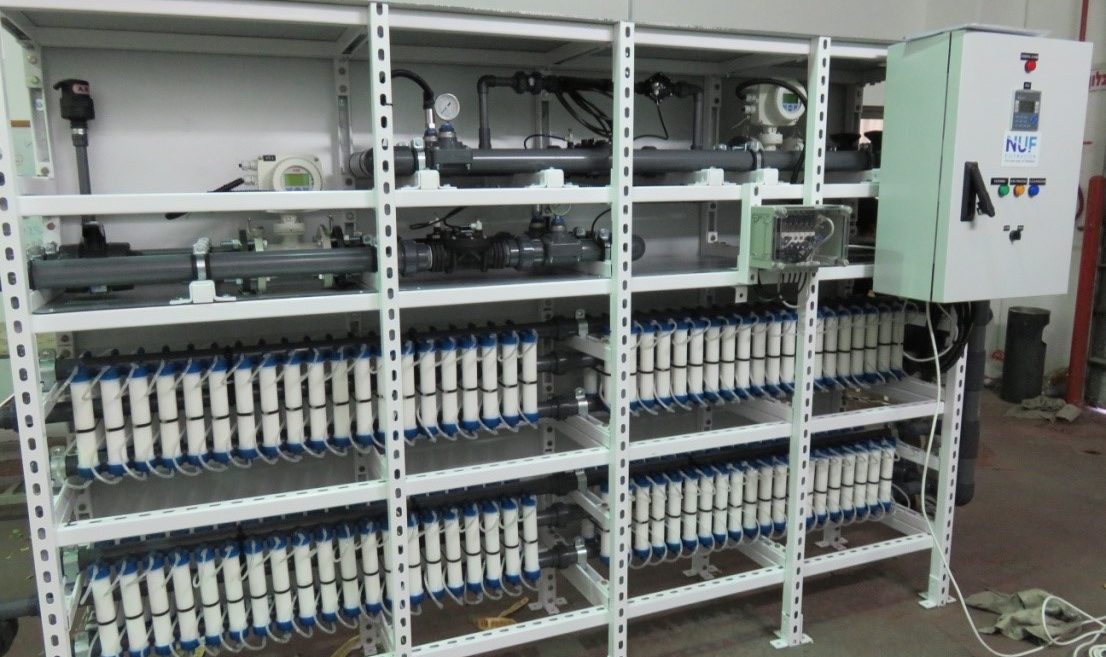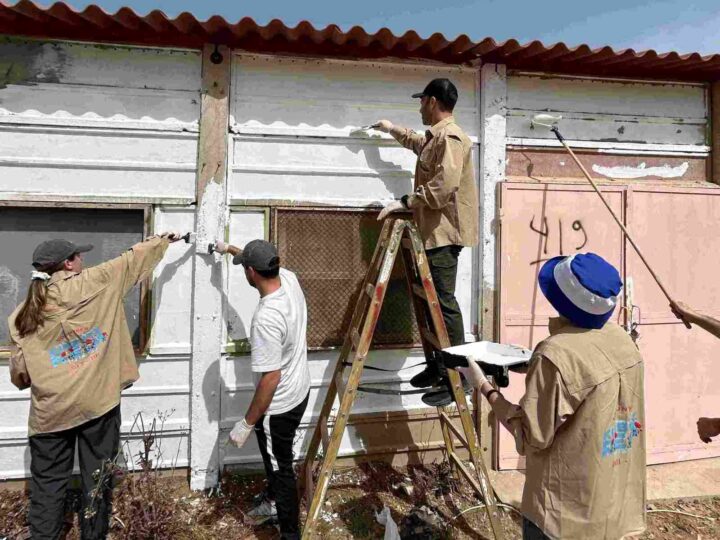Every year across the world, more than 250 million dialysis filters are thrown away after only a single use cleansing a kidney patient’s blood of toxins. What if those filters could be recycled for a new use, wondered Tel Aviv University Faculty of Medicine Prof. Yoram Lass.
Could a medical filter that can remove even the slightest unwanted particle from human blood also work for, say, water purification?
Lass, whose specialty is in hemodynamics (the dynamics of blood flow) developed a novel patent for cleaning water using dialysis filters. Not only would the quality far surpass existing industrial purification systems, but the raw materials – those millions of discarded filters piling up in landfills – were essentially free for the cost of pick-up and delivery.
Lass is a physician, not a businessman. But Israeli entrepreneur Mino Negrin knew a thing or two about water. In 2010, he sold Nirosoft, the Italian-Israeli company he created with his father to build water softening and desalination systems, to Ronald Lauder’s RWL Water Group.
The deal was lucrative enough that, at age 48, Negrin began taking courses in philosophy and Jewish thought at Hebrew University, anticipating a long and pleasant retirement. It didn’t last long.
“One day in 2011, I received a call from Prof. Lass,” Negrin tells ISRAEL21c. “He said to me, ‘I heard you’re successful in this field of membrane separation.’” That was the technology Negrin had developed for Nirosoft.
“I’ve got this patent,” Lass continued. “Would you like to see it?”
Negrin did and, as he puts it, “It was genius. The simplicity of it caught my eye immediately. It could filter out every micro-biological pollutant: viruses, bacteria, fungi.”
And then there was the cost: less than a dollar per dialysis filter.
Lass agreed to sell the patent and Negrin set up a new company, NUFiltration, to “industrialize” the process — to build the machinery and systems to collect, sterilize and distribute the filters.
Three years later, Negrin’s filters hit the market.
Drinking water and swimming pools
NUFiltration’s repurposed dialysis filters are currently used in three industries.
The most groundbreaking is purifying water in hard-to-reach rural areas of developing nations. NUFiltration packages multiple filters into a hand-carried machine that costs less than $1,000 and can be operated by a crank.
The unit can take water from a polluted source such a river and purify up to 500 liters an hour – “enough to supply all the daily water needs of 300 to 400 people who didn’t have access before,” Negrin says.
The filters only need to be replaced once every few years and NUFiltration provides a three-year warranty. NUFiltration systems are currently deployed in Ecuador, Colombia, Peru, the Fiji Islands, Cambodia, Vietnam, Ethiopia, Ghana, Kenya, Tanzania and Nigeria.
A second use for the filters is in swimming pools.
“The water treatment technique used in most swimming pools is very primitive,” Negrin says. “There’s no way to cope with micro-biological contamination, so they throw huge amounts of chlorine into the water. With our membranes, what goes back into the pool is completely disinfected water. You only need a very small amount of chlorine. It’s a much nicer swimming experience.”
NUFiltration also works with reclaiming wastewater from treatment plants for irrigating agriculture, public parks and gardens. “You have to remove any trace of pathogens and parasites from the water, otherwise it can contaminate an entire greenhouse,” Negrin says.
While Lass’s original patent covers converting a blood filter for use with water, the technology for cleaning and recycling the filters inside a kidney dialysis machine already existed. It’s rarely used, though, because the filter may be re-used only on the same patient. That’s too much bother for most dialysis centers (including 100 percent in the Western world, Negrin says) so they simply toss the filters.
While there are hundreds of millions of discarded dialysis filters around the world, NUFiltration is currently working with the million or so in Israel, having started with filters collected from Western Galilee Medical Center in Nahariya.
Growing slow is the right strategy, Negrin says. “The water market is not like high-tech,” he tells ISRAEL21c. “It takes time. People are reluctant to implement new technology in this area. If something goes wrong, it can be lethal.”
But that doesn’t mean Negrin isn’t pushing limits where it’s safe, especially where lives are at risk. Following a May 2016 earthquake in Ecuador, the disaster-relief Israeli NGO IsraAID brought a NUFiltration system to several affected villages. And the very first NUFiltration system in the field was piloted in Ghana as a purely humanitarian project.
NUFiltration has 11 people on staff and is entirely self-funded by Negrin, who is also keeping the business close to his home in Caesarea.
For more information, click here
















